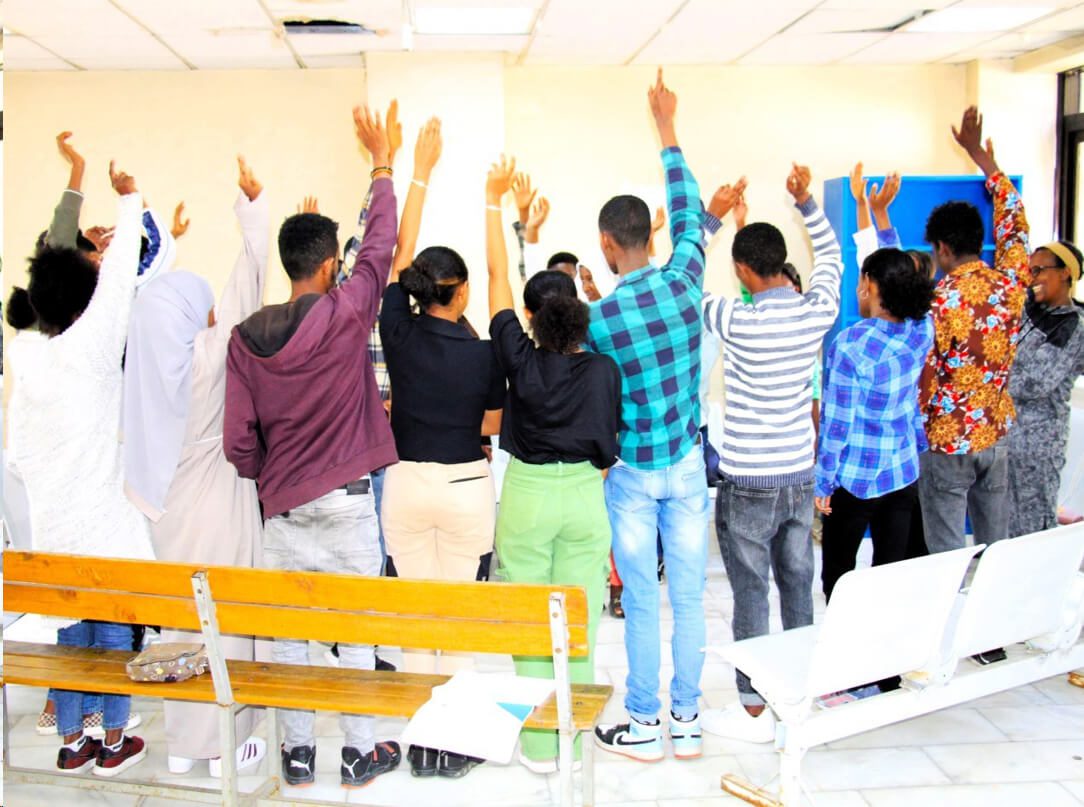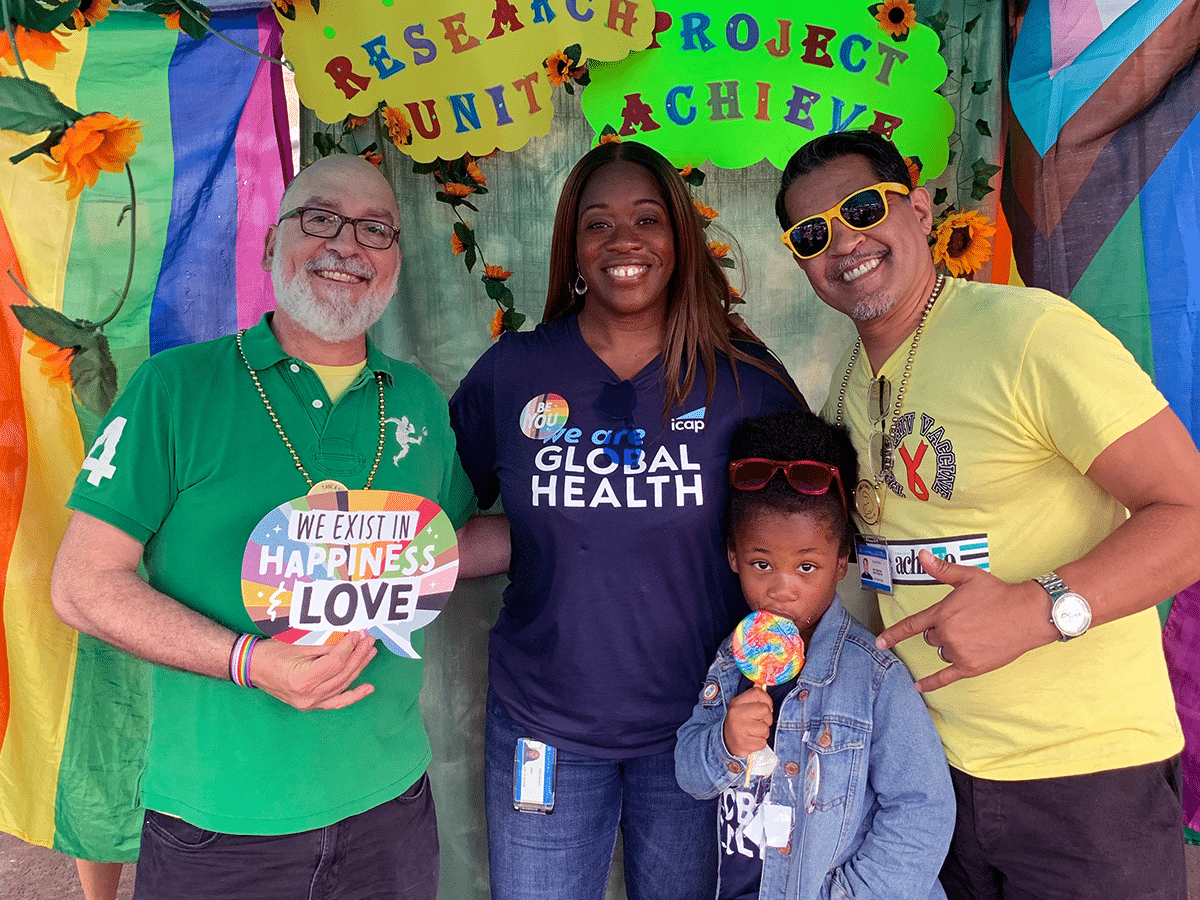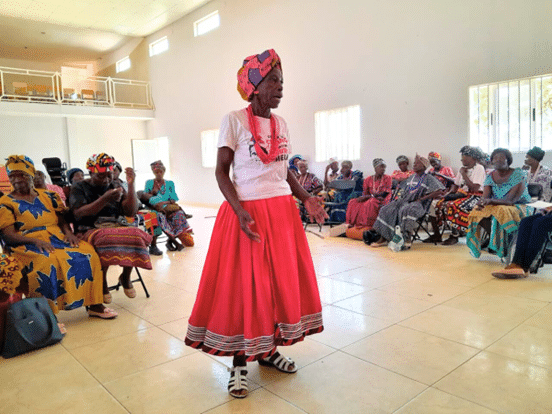Alemitu* and her youngest of three children, Ermias, 17,* have been receiving antiretroviral treatment (ART) and regular follow-up care at Zewditu Memorial Hospital in Addis Ababa, Ethiopia, since 2011. One day, at a gathering of mothers and caregivers at the hospital, Alemitu shared her extraordinary journey as both a person living with HIV and a mother to a child who was born with the virus, as well as the critical role that an ICAP-implemented program – Operation Triple Zero – has played in her son’s life since enrolling in 2019.
Alemitu first learned she was HIV positive at a visit to Zewditu Memorial Hospital’s antenatal care clinic during her pregnancy with Ermias. Out of fear and desperation, she initially refused to accept the result and the clinic’s offer of services to prevent the transmission of HIV to her baby. Ermias was born HIV positive.
Her situation worsened when her husband passed away from an HIV-related illness, leaving Alemitu and her three children in a precarious economic situation. She had no source of income and a recurring, HIV-related illness that made it difficult for her to care for her family, including an HIV-positive child. She and Ermias finally began antiretroviral treatment (ART), but as her son got older, he began to ask questions about the medications he was taking every day, which she refused to answer.
Ermias grew increasingly frustrated until one day, when he was 10, he angrily confronted his mother and demanded to know the truth. Annoyed and overwhelmed, she finally disclosed the painful reality: “Your father succumbed to HIV, and we are both HIV positive. We rely on ART – that’s the truth.”
The revelation upset Ermias and turned his world upside down, his mother said. He attempted suicide three times and had thoughts of harming his mother and siblings. He began refusing to take his medication and his viral load rose and his immune status began to decline.
When Ermias turned 15, Alemitu knew she needed help. She sought support at Zewditu, where she had already been receiving ARV treatment. There, she met Aster Shewaamare, MD, head of the hospital’s ART Unit, who introduced her and Ermias to the Operation Triple Zero (OTZ) program.
According to 2018 numbers, only 70 percent of adolescents living with HIV in Ethiopia had achieved viral suppression compared to over 90 percent of adults. Funded by the U.S. President’s Emergency Plan for AIDS Relief (PEPFAR) through the U.S. Centers for Disease Control and Prevention (CDC), OTZ is a “one-stop-shop” intervention program for children and adolescents living with HIV that aims for each participant to achieve zero missed appointments, zero missed medications, and zero viral load. With support from ICAP, OTZ launched in 2019 in seven health facilities in Ethiopia’s capital city and the Gambella Region. Since then, the program has expanded to 81 health facilities across seven regions of the country.
“Shaping the future of children with perinatal HIV is as vital as caring for adults living with HIV to ensure achieving epidemic control and an HIV-free generation at the global scale,” said Yewubdar Mandefro, ICAP in Ethiopia’s adolescent and youth peer support advisor.
The program offers supportive, age-appropriate, and youth friendly HIV treatment support services that are tailored to the specific – and often complex – physical, emotional, psychological, and social needs of adolescents living with HIV to help them stay in treatment, take medications as prescribed, and achieve an undetectable viral load. Over the last five years, Operation Triple Zero has enrolled 4,725 adolescents aged 10 to 19 years old; the viral suppression rate among participants has risen from 79 percent in 2019 to 98 percent in 2023.
“Merely administering antiretroviral therapy is inadequate. Without social and psychological support for those in treatment, isolated efforts may not yield the desired results,” explained Yewubdar, who has worked closely with participating health facilities and adolescents in the program since its launch five years ago.
Ermias’s enrollment into the OTZ program became a turning point in the lives of both mother and son.
“Upon learning of my HIV status, I felt as though my world had crumbled around me,” said Ermias. “The OTZ program, however, became my beacon of hope. Today, my confidence is boosted. I am relieved from depression and loneliness since I joined this program. I now feel at ease socializing with friends and I take my medications regularly.”
“The impact of the OTZ program extends far beyond the boundaries of child and adolescent HIV care,” said Zenebe Melaku, MD, ICAP in Ethiopia’s country director. “Its positive effects reverberate in prevention of mother-to-child transmission of HIV programs, adult HIV care and treatment, and the general HIV care program as these individuals transition into adulthood.”
*Not their real names
About ICAP
A major global health organization that has been improving public health in countries around the world for two decades, ICAP works to transform the health of populations through innovation, science, and global collaboration. Based at Columbia Mailman School of Public Health, ICAP has projects in more than 40 countries, working side-by-side with ministries of health and local governmental, non-governmental, academic, and community partners to confront some of the world’s greatest health challenges. Through evidence-informed programs, meaningful research, tailored technical assistance, effective training and education programs, and rigorous surveillance to measure and evaluate the impact of public health interventions, ICAP aims to realize a global vision of healthy people, empowered communities, and thriving societies. Online at icap.columbia.edu








